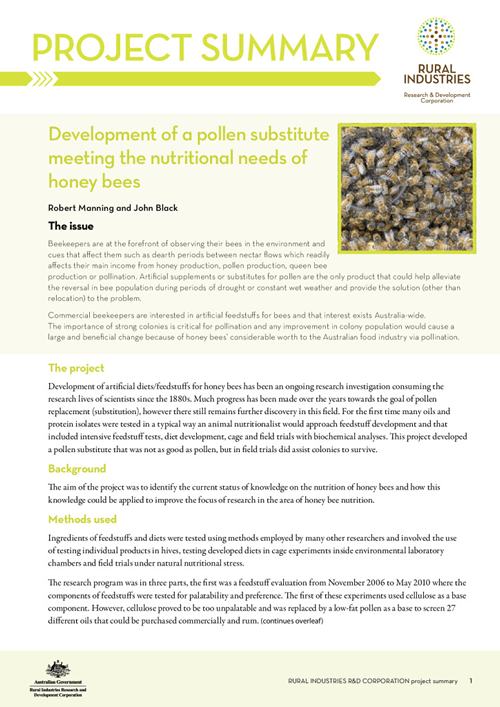Beekeepers are at the forefront of observing their bees in the environment and cues that affect them such as dearth periods between nectar flows which readily affects their main income from honey production, pollen production, queen bee production or pollination. Artificial supplements or substitutes for pollen are the only product that could help alleviate the reversal in bee population during periods of drought or constant wet weather and provide the solution (other than relocation) to the problem.
Commercial beekeepers are interested in artificial feedstuffs for bees and that interest exists Australia-wide.
The importance of strong colonies is critical for pollination and any improvement in colony population would cause a large and beneficial change because of honey bees’ considerable worth to the Australian food industry via pollination.





